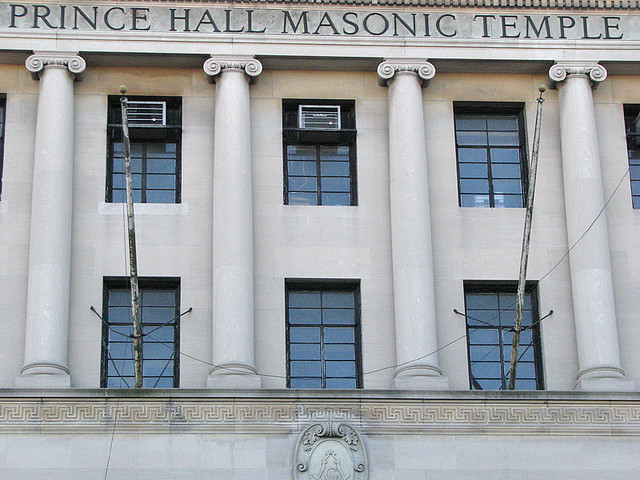En:Prince Hall

Prince Hall
Prince Hall Freemasonry Source: Wikipedia
Prince Hall Freemasonry derives from historical events in the early United States that led to a tradition of separate, predominantly African-American Freemasonry in North America.
In 1775, an African-American named Prince Hall[19] was initiated into an Irish Constitution military Lodge then in Boston, Massachusetts, along with fourteen other African-Americans, all of whom were free-born. When the military Lodge left North America, those fifteen men were given the authority to meet as a Lodge, form Processions on the days of the Saints John, and conduct Masonic funerals, but not to confer degrees, nor to do other Masonic work. In 1784, these individuals applied for, and obtained, a Lodge Warrant from the Premier Grand Lodge of England (GLE) and formed African Lodge, Number 459. When the UGLE was formed in 1813, all U.S.-based Lodges were stricken from their rolls – due largely to the War of 1812. Thus, separated from both UGLE and any concordantly recognised U.S. Grand Lodge, African Lodge re-titled itself as the African Lodge, Number 1 – and became a de facto "Grand Lodge" (this Lodge is not to be confused with the various Grand Lodges on the Continent of Africa). As with the rest of U.S. Freemasonry, Prince Hall Freemasonry soon grew and organised on a Grand Lodge system for each state.
Widespread segregation in 19th- and early 20th-century North America made it difficult for African-Americans to join Lodges outside of Prince Hall jurisdictions – and impossible for inter-jurisdiction recognition between the parallel U.S. Masonic authorities.
Prince Hall Masonry has always been regular in all respects except constitutional separation, and this separation has diminished in recent years. At present, Prince Hall Grand Lodges are recognised by some UGLE Concordant Grand Lodges and not by others, but they appear to be working toward full recognition, with UGLE granting at least some degree of recognition.[20] There are a growing number of both Prince Hall Lodges and non-Prince Hall Lodges that have ethnically diverse membership.
Videos
<videoflash>x5Ktk0f5oSk</videoflash>
Source: youtube.de
